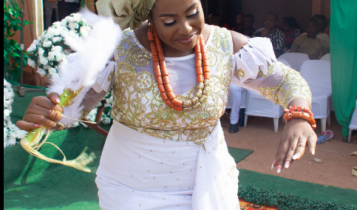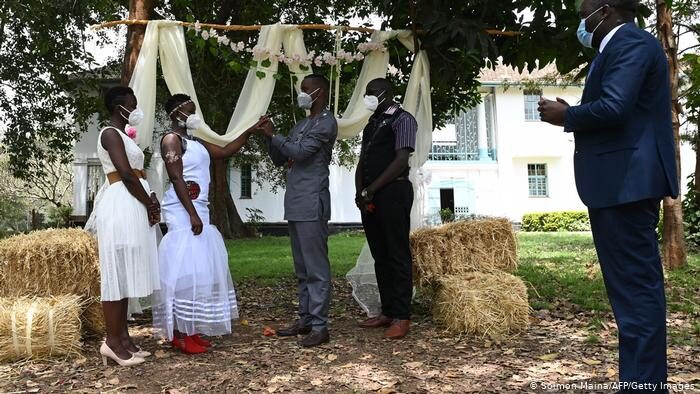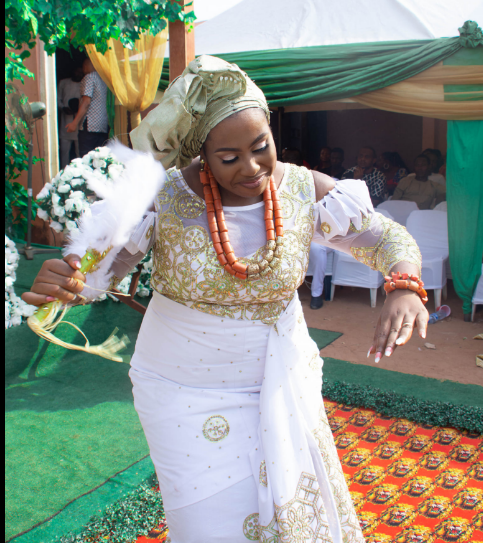By Chinelo Nwangene
The 2020 Christmas festival came at a period of heightened uncertainty over second wave of coronavirus pandemic and socio-economic downturn in Nigeria and the global community. The prolonged COVID-19 crisis has put paid to many a couple’s dream wedding and social engagements.
The world celebrated the Christmas season battling with massive hospitalisations and deaths resulting from the second wave of COVID-19 spread. The second wave is believed to be driven by a new strain of coronavirus which experts say is 70 percent easier to spread than the old variant.
Even as governments across the world rush through the process of administering the newly approved vaccine, another round of restrictions and safety precautions are already being imposed to curb the spread of the deadly virus. In Nigeria, the federal government and most state governments have already announced restrictions on social activities and re-imposed safety protocols to mitigate the virus spread.
Nigerian ladies are more likely to feel the impact of the new restrictions on socio-religious activities and strict observation of safety protocols. Christmas, a season when Nigerian ladies attend or engage in many social, cultural and religious activities ranging from end of year parties, Christmas carols, church services, traditional marriages/wedding ceremonies to funerals, lunching, village/town meetings etc. However, the impact of the second wave of COVID-19 pandemic scuttled most of these activities during the last Christmas season with many Nigerian ladies left in the cold.
Many people cancelled their travel plans and their social engagements for Christmas and New Year periods. Apart from the economic loss, the psychological impact of these late change of plans forced on people by the authorities in response to the new COVID-19 pandemic is enormous.
In Igboland where typical traditional or white wedding attracts huge crowd and lavish entertainments, the expanding COVID-19 crisis definitely forced organisers to either cancel the events or compel their guests to wear masks, observe social distancing, restrict number of attendees, and engage in cost cutting. Ladies who had been planning to have weddings of their dreams during the Christmas were worse hit. Their expectations of an elaborate ceremony attended by many cheering friends and well-wishers with more than enough food and live music to enjoy were curtailed, no thanks to the COVID-19 crisis.
With many families still struggling financially and the prospect of economic recovery not in sight, postponed or low-key events became normal across Igboland and beyond during the last Christmas and New Year. The fact that many had shifted their weddings or other social events to the Christmas period, hoping that COVID-19 would be over by then, made the crisis more disappointing.
John Madukwe and his fiancé, Nkechi were one of those caught in the web of COVID-19. He said: “We had planned our wedding last Easter and had already gone far with the preparation for it before coronavirus forced us to postpone it until December 26, but the new wave of COVID-19 posed a major threat.
“We could not afford to postpone it again. It would have made us a laughing stock. We therefore went for low-key wedding.” His fiancee was more disappointed over the development because she had already made elaborate plans for their wedding and honeymoon abroad.
“We could not even afford to travel abroad even if we had the money because of this COVID-19. Apart from that, prices of everything almost doubled. It cost almost twice to host a wedding than it cost a year ago,” she said.
The pandemic also changed the wedding plans of Mr Simon Daniel. He was planning to host an elaborate wedding of his dream until COVID-19 cost him his job as an engineer. He ended up having a private wedding last November to avoid losing his bride. “I asked my family and my fiancee to understand that it was due to the situation,” he said.
There are equally concerns about the possibility of meeting up with bride price requirements by grooms grappling with the ripples of COVID-19. With bride price or dowry costing as high as N500,000 in cash and gifts or both in many parts of Igboland and beyond, not many could easily afford them.
“The economic challenges thrown up by COVID-19 had made it very difficult for people to meet up with their basic needs, and for prospective grooms to save enough money to meet the traditional bride price payment requirements. Even those doing business are struggling right now and the worst affected were salary earners whose income had been reduced by inflation,” disclosed Chief Simon Udeh.
However, those who had already fixed their wedding dates felt the pains of cancelation. Ugochi, for example, had already finished distributing invitation cards for her traditional marriage with her South Africa-based fiancé, Ike and had completed most of her shopping when she got the shocking news. The wedding did not take place during the Christmas season as planned. Her would-be husband tested positive to COVID-19 and was hospitalized. She shared her dramatic shocking moment with Orient Feminine:
“I felt shattered because he was supposed to be back in Nigeria on December 21 and meet me in Lagos for us to fly straight to our home town ahead of our wedding slated for December 30. But, two days to his travel, I was calling his number to know how he was preparing and to inform him about some of the things he told me to get ready for him. But he did not pick my calls. It was his friend, Daniel that later told me that he was down with fever. At first, I did not suspect anything because I know that ordinary malaria would not stop him from returning to Nigeria.
“My world was shattered when he eventually sent me a message that he was taken to hospital after falling sick and later tested positive to COVID. Because of that everything about our wedding was postponed until further notice. At first, I did not know whether it was the fear of losing him or that of failed wedding that made me pass out. All I knew was that I woke up later at the hospital after hours,” she concluded.
Similarly, Ifeoma Okafor considered herself lucky that her wedding fixed for December 26 was going as planned as her husband had already travelled down from Lagos. Yet, she was disappointed that it was not the wedding she hoped for. “It’s definitely not going to be what we hoped for. Many people we expected to be there later indicated that they won’t make it again due to safety and travel restrictions. Of course, it’s sad spending huge sums on a wedding that ended up low-keyed. But there was nothing we could do about it as what mattered then was our safety and that of those that would attend,” she said.



